#muhan
Text

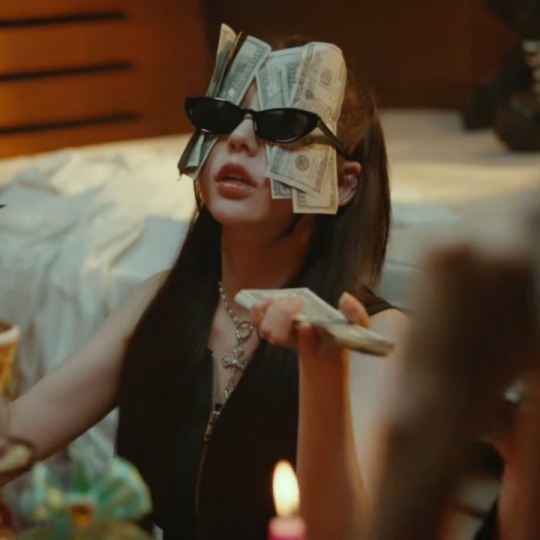

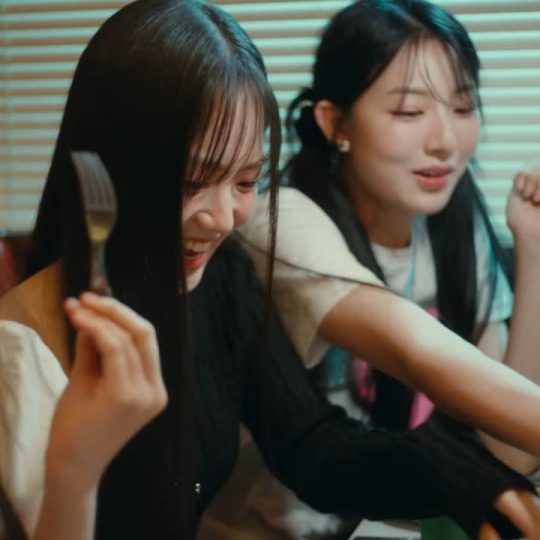
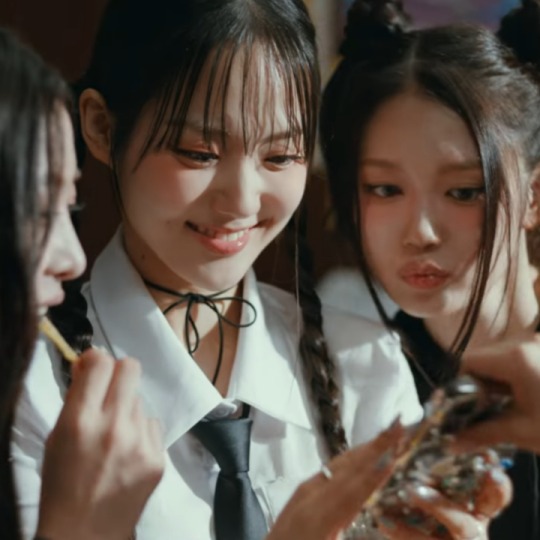
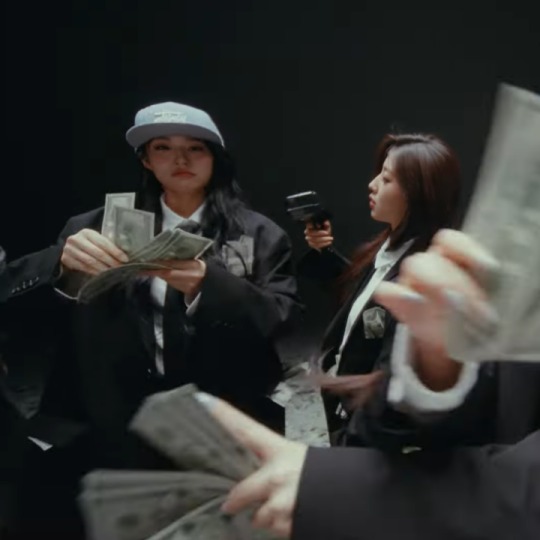

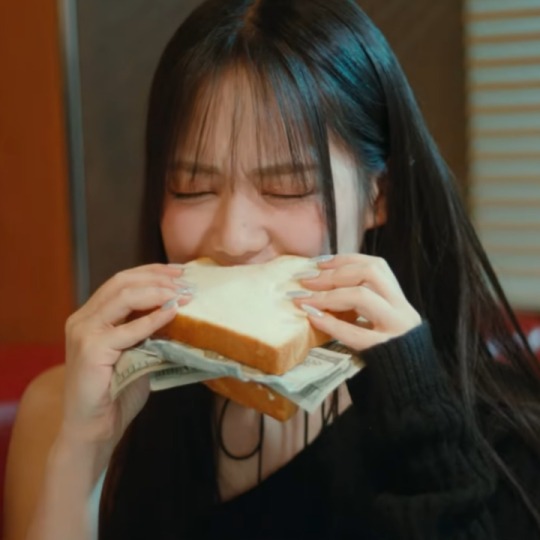
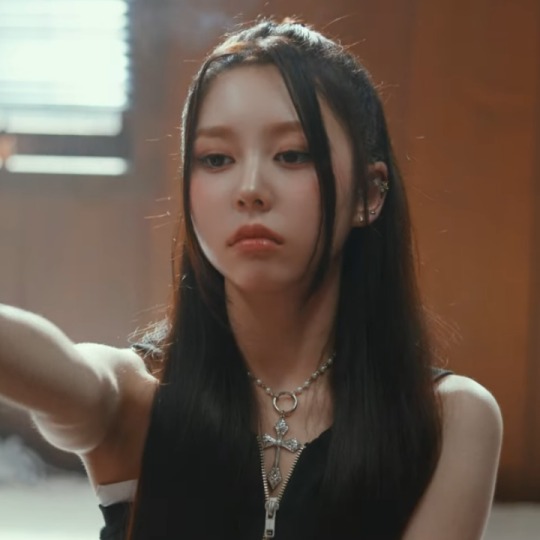
LOVElution
#triple s#triple s icons#triples icons#triples#lovelution#lovelution icons#girls capitalism#triples lovelution#yubin icons#seoyeon icons#kaede icons#hyerin icons#nien icons#dahyun icons#sohyun icons#xinyu icons#icons#kpop icons#gg icons#muhan#girl group icons
136 notes
·
View notes
Photo
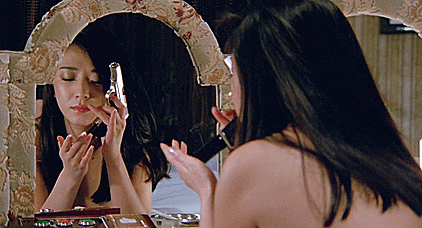

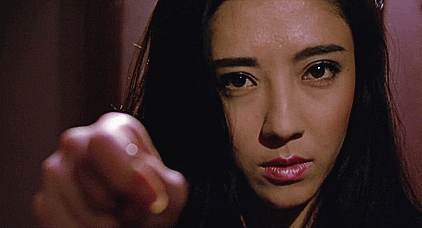
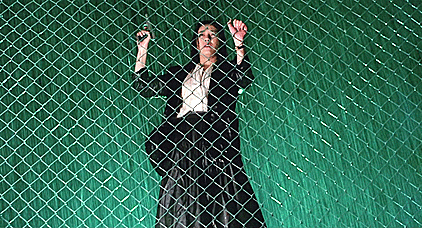
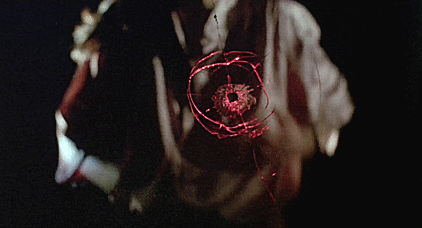
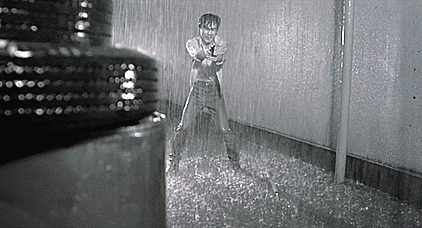
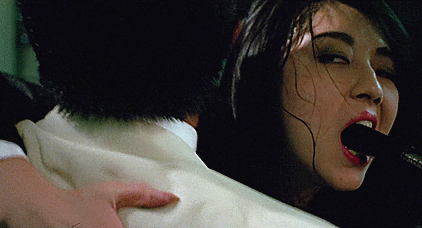
Dream Crimes (1985)
#Dream Crimes#muhan#Rei Akasaka#Takashi Naitô#Naosuke Kurosawa#Kazuhiro Yamaji#japanese cinema#80s action movies#filmedit#80s movies#80s film#Japan#80s
122 notes
·
View notes
Text

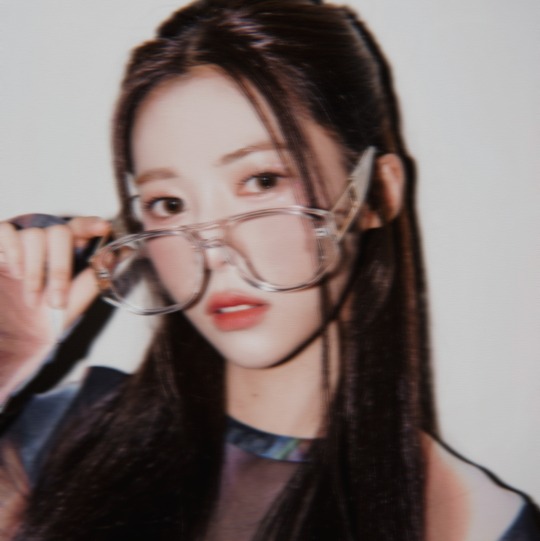
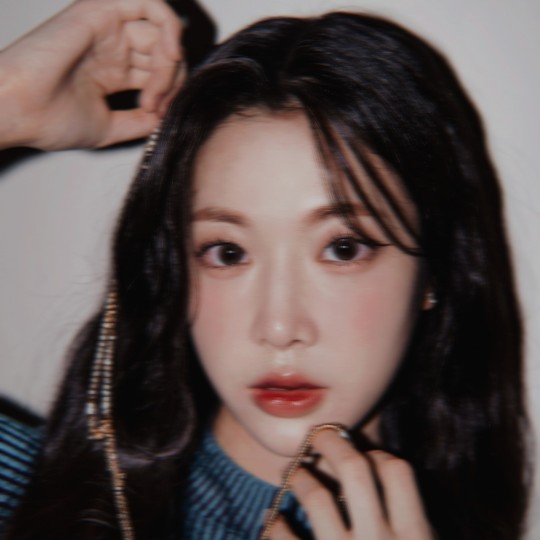


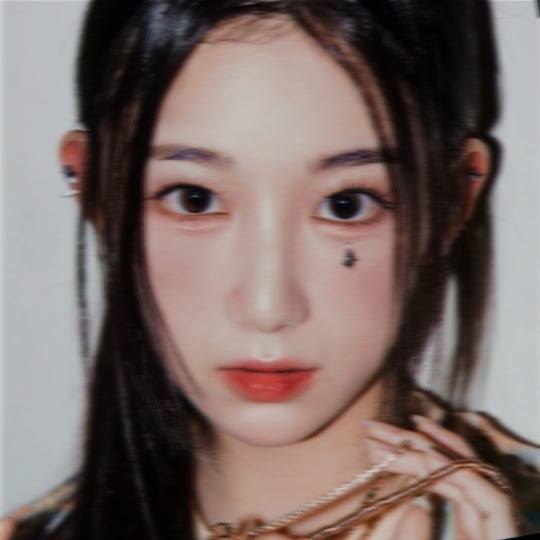
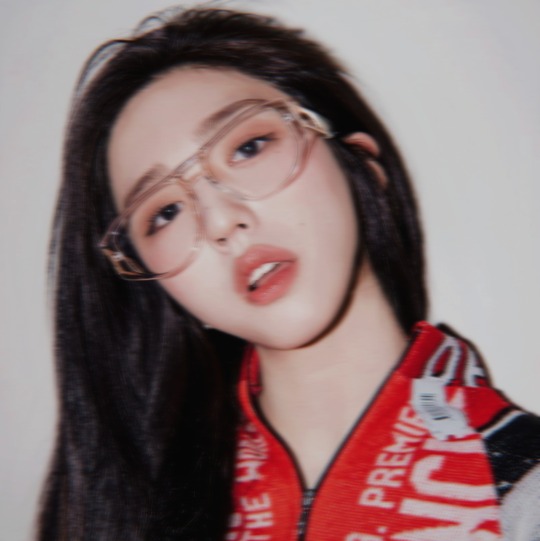
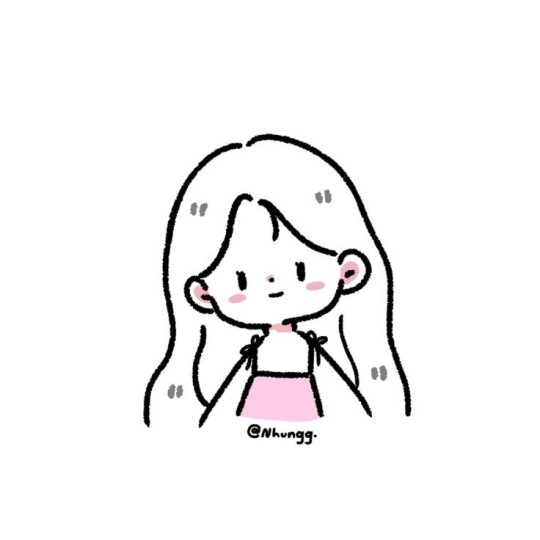

tripleS LOVElution
lovelution icons (all members)
like and reblog if you save it
#tripleS#triple s#triples lovelution#triple s yubin#triple s seoyeon#triple s kaede#triple s hyerin#triple s nien#triple s dahyun#triple s sohyun#triple s xinyu#lovelution#girls capitalism#muhan#kpop icons#kpop girl groups#girl group icons#kpop moodboard
24 notes
·
View notes
Text
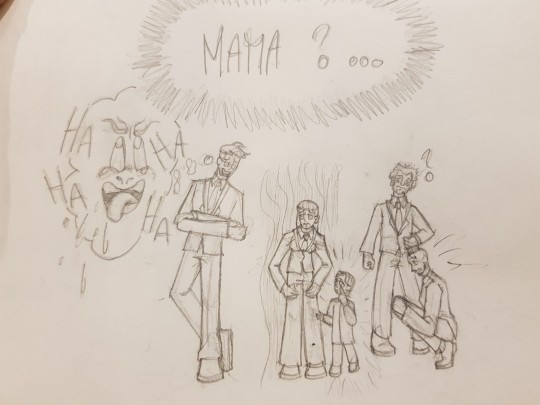


I am tired 😭😭😭. But I still want to share this 😓. Theta is NOT paid enough to deal with a lost kid who find maternal comfort around her. Not.Paid.Enough.
#hunter x hunter#hxh#theta#my queen 😫#my love of my life 🤩#succession war arc#muhan#danjin#sarkov#the mysterious 5th member of the bodyguards crew is not there#he is waaaaaaaaaaay to much irrevelent to NOT be revelant#like...he is not introduced don't have a name don't said a single line don't get any special order don't move#... HE IS WEIRD WHAT THE HELL IS WRONG WITH HIM !!!#anyways
3 notes
·
View notes
Text
tripleS Subunit LOVElution Liberate Their 1st Mini Album "LOVElution (Muhan)"
2022 was once a 12 months the place a large number of issues took place within the Okay-Pop scene. From departure, disbandment and hiatus, many teams additionally made their debut, some being in reality a success, basically amongst lady teams. In case you are curious to be told in regards to the teams that have made their debut in 2022, to find out extra beneath.
Kpopmap has spotted that there…

View On WordPress
1 note
·
View note
Photo

Muhanned Cader (Sri Lankan, 1966), Weheragala III, 2022. Oil on wood, 6.5 x 4.5 in.
101 notes
·
View notes
Text

5 notes
·
View notes
Text
I am fascinated by whoever on the make up team of The Princess and the Werewolf decided that eyeliner to make the villain look evil just wouldn't cut it, and decided to give Jing Muhan spectacular false eyelashes instead. They are my hero, he looks incredible
#The Princess and the Werewolf#cdrama#what happened to banning pretty boys huh#the femmeboy ban was in fact a lie
26 notes
·
View notes
Text
Since "Palestine Speaks: Narratives of Life Under Occupation" is suspiciously not available in the US in the form of an e-book, I purchased a physical copy and wanted to share it here for anyone else also unable to get access.
MUHANNED AL-AZZAH
Artist, 33
Born in Al-Azzah refugee camp, West Bank
Interviewed in Bethlehem and Ramallah, West Bank

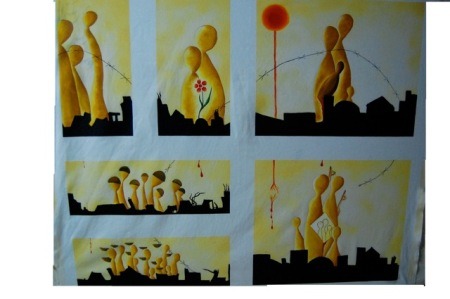

The Al-Azzah refugee camp in Bethlehem is barely more than an alleyway bordered by dozens of small houses jammed closely together. As one walks through the tight corridors, it's hard to miss the haunting murals painted on the walls of the houses. These paintings are taken from the Handala cartoon series created by the late Palestinian artist Naji Al-Ali.¹ In one mural, a girl's hair is twisted into barbed wire. The painting on another house shows gaunt refugees packing their bags and preparing to flee. On another house farther down the street, fat politicians wag their fingers at an emaciated man in rags.
The artist behind these graffitied murals is Muhanned Al-Azzah. With a full beard on his lean face, Muhanned looks the part of an artist. He's soft spoken but funny, and laughter accompanies all of our interviews. Muhanned's family gave the Al-Azzah refugee camp its name when they led the flight from their village in what is now Israel to Bethlehem during the Arab-Israeli War, or Nakba, in 1948.² For Muhanned, as well as many other refugees, the dream of returning to lands lost in 1948 (and during the Six-Day War in 1967) persists, even if little remains today of those farms and villages. This dream of a right to return to property long ago claimed by Israel drives much of the politics of resistance within Palestine.³
Muhanned is a prolific painter, and his work can be found both on the sides of buildings and in galleries around the West Bank. On the day of our first interview, he is preparing a collection of abstract paintings for a show in London. Muhanned's paintings explore different subjects, but his recurring focus is the three years spent in an Israeli prison. At the end of our first interview, he shows us his rooftop studio, his paintings, and the bullet holes in the walls from the night of his arrest.
MY FAMILY HAS BEEN IN THE CAMP SINCE 1948
I was born here in the camp, in September 1981. My parents were born here too. In 1948, my grandparents on both sides left our land, our original village, Beit Jibrin, which is northwest of Hebron.⁴ Even though I've never visited Beit Jibrin, I feel I'm from there. I know all its details, since I've heard so much about it from my grandparents. I know that it's our village.
I know the story of how my grandparents fled the village in October of 1948. One day the soldiers came with guns, planes, and tanks, and everyone in town fled to nearby caves. But some people came back to the village in the night to sleep inside their houses or get things they needed. Then Israeli soldiers entered each house. The first adult male they found inside a house, they brought him to an open space and shot him in front of everyone.The men knew that if they were caught, they might be arrested or shot, so they fled right away. The women followed with whatever they could carry. They didn't have much money, and they couldn't carry much with them. The most important thing was to bring documents to prove that they owned their houses and keep them someplace safe. Most villagers fleeing Beit Jibrin then came here to Bethlehem, where they set up a camp and named it Al-Azzah, after my family.
I have a twin sister, two younger brothers, and one younger sister. Life in the camp has been the same since I was a child. On a typical day, we wake up and the adults go to the main street to eat and talk, to speak about things that are important. Really, it's like cocktail conversation—the news of the day, what's happening with different families, what's happening with the houses in camp. We have political discussions every day, but only in the evenings. In the morning, politics will destroy your brain.
This camp has a little over 1,500 people living in maybe 120 buildings, all packed close together. Everyone knows each other—people spend a lot of time outside because we have such small houses. On the one hand, it can be useful that the community is so close. If a family needs work done on their house, people from the neighborhood will just show up and help. If a family is hungry, a neighbor always has food for them. But you can't expect any privacy here. If you make something good to eat, people are going to know about it and show up for a meal. If you just want some time to yourself, forget about it. You could be sitting in your pajamas trying to rest or think, and someone will show up at your house and say, "Hey, you wanna go get coffee?" It was especially hard for my sisters growing up. If they came home in the evenings even just a little late, everyone in the camp would know they were out late and gossip about them. The girls have an even harder time here than the boys, I think.
THE SOLDIERS WENT CRAZY WHEN THEY FOUND WRITING ON THE WALLS
I grew up dreaming of Beit Jibrin as a paradise. My grandparents always told us about how great life was for them there. Their home and garden in Beit Jibrin were as big as the whole refugee camp where my family lives now. All of my family has hoped that one day we'd be able to return there and live again in our own home.
That's why we were against the Oslo Accords in the mid-nineties.⁶ The accords officially made the land that Beit Jibrin was on part of Israel. For us, we've always wanted a single state between Israel and Palestine so that we can return to Beit Jibrin. We didn't want to accept the Oslo Accords, and some parties in Palestine didn't either. The PFLP opposed the accords and the idea of two separate states that took our land in places like Beit Jibrin and just gave it up to Israel.⁷ The PFLP also supported the right of return, the rights of Palestinians to reclaim land lost in the warduring the Nakba.⁸ So as I grew up, although there wasn't really a single time or event that led me to it, I came to join the PFLP. There were other things I liked about them too—they weren't a religious party. Hamas, that's the big religious party. And Fatah, that's the big party within the Palestinian Liberation Organization, they were always looking for compromise and were willing to accept two states.⁹ But the PFLP seemed like a fit for me-they represented my interests as a refugee from 1948. I'm not going to say much more about their beliefs, though, because I don't want this story to sound like propaganda!
As I grew up, I got more and more into art. My father was an Arabic Literature teacher, and my parents sent me to classes and workshops in Palestinian art at a young age. I grew up seeing art as a way of resistance, through graffiti. During the First Intifada, in 1987, there was no media, there was no radio to cover all that was happening in Palestine.¹⁰ But there were the walls of the houses. They were the only place for media. For example, if there was to be a strike the next day and everyone had to close their shops, there was no simple way to get the message out. So in the night, some people with masks would go into the street with spray paint and write, "Tomorrow, August 9, will be a day of strike for all the shops and schools." So in the morning, everybody could see it.
And every day, when the people went outside, the first thing they did was look at the walls. Sometimes the message was, "Next week, we are gathering for a demonstration on Tuesday." Sometimes there was writing about a martyr, someone who was killed in Bethlehem." The soldiers, when they came in the camp, they'd go crazy when they found this writing fight over on the walls. They would arrest people, and every day there was a who should clean it up. Some people cleaned it, some people refused. And it was very dangerous when artists went out at night to write on the walls.
I was doing some of the same sort of thing even as a teenager. Art was my own individual way of resisting, but we can't do much just as individuals to resist-that just leads to chaos, so that's why I joined the PFLP. More than anything I wanted a chance to go back some day to live in Beit Jibrin, and so a lot of my art has been about being a refugee, about wanting to return home.
After high school, I went to Al-Quds University in Abu Dis to study painting.¹² I also had a chance to study traditional arts in Morocco-decoration, Andalusian art, mosaics, and writing.¹³ When I returned home, I continued to study Palestinian art and culture, and I stayed politically active as well.
I was part of the PFLP through 2004, when I was around twenty-two. I met with other members and organized protests and other campaigns on campus. The Israelis considered the PFLP terrorists and an illegal political party, and so I knew that I could be arrested one day, and maybe even killed. But at that time I was feeling that we were under occupation and somebody must do something to change this situation, and anything anybody could do for Palestine was for the good.
SOMETIMES PEOPLE JUST DISAPPEAR
Late on the night of April 15, 2004, I was home asleep. I slept in an apartment on the roof, where I also had an art studio. My whole family was there, and they stayed on the second floor of the building. We had a friend staying with us as well. My uncle's family lived on the ground floor. Suddenly I woke up hearing megaphones. I knew it was the Israeli military. They were ordering everyone out onto the street, demanding that everyone on the block come out of their homes.
I got out of bed quickly and my first thought was how I could escape. I went to the window and looked out. I saw my neighbors filing out of their homes, and Israeli soldiers were there with jeeps and vans—it looked like they were circling the entire camp. As I watched, the soldiers were moving toward our house, starting to circle it. Then they called out my name through the megaphone. They spoke directly to me in Arabic. "Muhanned Al-Azzah. You cannot escape. Put your hands up and leave the house."
I took my time, if I can speak freely, to hide whatever I didn't want them to take when they searched the house. I hadn't been part of planning any big operations or doing anything violent, but it was against Israeli law to even promote or be part of the PFLP. I guessed they were arresting me because someone had let them know I was organizing for the party.
All I could think was that I might die in a moment, and I asked God for just a few more moments to live. My adrenaline was so high, it wasn't a matter of being strong or not strong, just wanting to survive. But I took my time and put on warm clothes. I knew if I went outside, there would be no time to come back and get clothes. After a few minutes, they started shouting into the megaphone again. By this time, the rest of the people in my house were already outside. I started to see the red laser lights of their guns all over my room. They fired a couple of shots at the house. And they kept demanding that I come out, even as they were shooting at my window. I hid as best I could while I decided what to do next.
After some more time, they brought my mother from the street to my bedroom door. She told me to open the door, that it was safe to go outside. So finally I opened the door and went out with five laser sights hovering over my body. I was terrified.
My neighbors were all outside their houses sitting in the street in the middle of the night. There were maybe fifty people, my family and neighbors, watching and waiting for me.
The soldiers didn't tell me why they were arresting me. They told my family they needed to speak with me for five to ten minutes and then I'd come back. My mother was crying, but she couldn't move because there were a lot of soldiers surrounding her. She couldn't tell me goodbye. My family knew I would come back, but not when-in one hour? One day? One hundred years?
After the soldiers handcuffed me, they put me in one of their jeeps, and we drove for what seemed like a couple of hours. We ended up at Al-Muskubiya in Jerusalem.¹⁴
The room where they took me was small-maybe eight feet by eight feet, white, with air conditioning. There was a white light, a table, and computer—these were the only things in sight, other than a chair in the middle of the room. The chair was fixed to the ground. They cuffed my hands behind the chair and chained my legs and hands to it. I couldn't move a millimeter.
Then they questioned me for two days straight. They'd be asking me questions for twenty or more hours a day, with three or four officers asking the same sorts of questions. They weren't really about anything particular—just questions about my life. They didn't even accuse me of anything. I started to get very confused and disoriented. I fell asleep hundreds of times, but just for a second each time. When they saw that I was nodding off, they'd throw water on me to wake me up. They pushed me very hard. Twice a day, they brought me beans and released one of my hands. They said I had two minutes to eat. After two days of being awake, sitting upright, not moving, my legs and hands became numb.
They'd also tell me things to break me down. They told me that my house had been demolished, that my family had been killed. They brought pictures of my younger brothers and told me they'd been shot. I didn't really doubt them, and I assumed I'd be killed too. Sometimes people just disappear, and I thought I'd be one of those people. I started to feel lost, just completely out of focus.
Finally on the third day, they let me know I was being held because of my association with the PFLP and because they suspected the PFLP was planning an attack on Israel. They wanted me to talk about it. I didn't know anything about an attack, but I also didn't want to give them any names of other people in the PFLP that I knew, so I stayed quiet. If I gave them names of other PFLP members, they would arrest them too. Sometimes they'd interrogate me for just a few hours a day, sometimes for twenty hours or more. When I wasn't being interrogated, they sent me to a small, gray room—less than six feet by six feet. If I tried to lie down to sleep, my head and legs would be pressed against opposite walls. If I caused a problem in this room, like making too much noise, they'd cuff me and leave me bound up for five or six hours. They gave me just enough food to keep me alive. After a week, they gave me a few cigarettes but no lighter.
Sometimes in between long sessions, they'd put me in a cell with other Arab men. These men would tell me their stories, say they were from Hebron or whatever, and then start asking a lot of questions about me. It was pretty obvious that these men were informants, part of the interrogation, and that their job was to get me to talk when I was feeling less scared, more relaxed. They'd say things like, "I told the Israelis everything, and now I can sleep. If you tell them everything, they'll be easier with you.”
I never saw sunlight. I never knew what time it was—evening, morning? I would sleep for a few hours, and I didn't know whether I slept for one hour or for one hundred hours. I didn't know what day it was. I didn't know anything. I spent a lot of time alone, and my mind was going, but I had something inside that pushed me to stay strong.
JAIL IS A TIME TO MAKE AN EVALUATION OF YOUR LIFE
After about four months in Al-Muskubiya, I was taken to military court.¹⁵ There were around twenty soldiers there, all with guns. I felt alone and threatened, and I think this was part of the game. They wanted to scare me in any way they could. But I felt strong, because I was not just one person, I was one with the Palestinian cause. I was a civilian, I had the right to resist occupation, and I didn't care about what they would accuse me of. I didn't listen to what they said, really. They charged me with political activism, activity against the Israeli state, and being a member of an illegal political party—the PFLP. They had no evidence against me that I was part of any attacks on Israel, just that I had promoted the PFLP. They gave me three years.
I was taken to a prison near Be'er Sheva around August of 2004, not quite four months after my arrest. The amazing thing was that the route that the prison bus took to get to Be'er Sheva took me right through the site where my home village, Beit Jibrin, used to be. I had never seen it before, so I tried to see as much as I could as we passed through. When I saw the village, I was shaken. My grandparents had said so many good things about it, about the good old days. I had dreamt of it as a paradise. But the land was barren except for a few trailers that make up an Israeli settlement. There was an old mosque, and lots of ruins—old stones and parts of buildings that were thousands of years old.
My grandparents had been driven from their home by force, and here I was seeing it, again only by force. It was hard. I was alone. It reminded me that I wasn't with my family, and I always imagined I'd see the village some day with them. It was a bad, lonely feeling. It was almost like I had woken up from a coma—I couldn't make sense of everything that must have changed from that time before 1948, a time I knew only in my dreams.
Life at the prison at Be'er Sheva took some time to get used to. I spent most of my days inside my cell. The cells were about ten feet by fifteen feet, and there were seven people living in each one. There were bunk beds for each of us, but we couldn't come down from the beds all together at the same time because there wasn't enough space to stand. For example, when we wanted to clean the room, only two people could do the cleaning.
Everyone was from different places. Some people were very old, some people were young. Some had ten or twenty years in jail, and some had one year. If you wanted time alone, you had to pretend you were sleeping. From the first day, I began to get to know the other prisoners pretty well. Social relations in Palestine are very close—there are strong connections between Palestinian people. So you can find somebody in jail whose brother or friends you know and you can speak with him.
We had two opportunities to leave our room-once in the morning and once for an hour in the evening. We walked outside in the prison courtyard. In my section there were over a hundred people, but only forty people could fit in the courtyard. So forty people entered and walked in a circle in rows, four to a row. We had one hour, so we walked half an hour clockwise and half an hour counter-clockwise. One of the prisoners would clap when half an hour was up and then we'd walk in the opposite direction. As we walked, I thought, This is the circle of our life, of every day. And when we start at this point, after one hour we will be back at the same point.
The courtyard was mostly covered, so there was barely any sunlight even on bright days. Most of the prisoners started to feel sick, just from lack of sun. There were some small windows in the hallways outside the rooms, and if you wanted to get sun, you had to go there in the morning. But there was a pecking order. I was new to the prison, and there were older people who had been in jail for twenty years and they were sick, so it was more important for them to be in the sun than me. I didn't really see any sun for over a year.
Slowly, my mind started to bend and adapt to life inside cell walls. Jail is a time for each Palestinian to sit with himself, a time to make an evaluation of his life. And it's an important, powerful experience to have the time to learn and share stories with people in jail.
Sometimes we found somebody sitting by himself in the room with his mind on the outside world, and we knew we had to keep him from feeling alone. If any of us prisoners began to live with our mind outside the jail, we would start to feel down, depressed. So we would give each other a little time to think those thoughts, but if we saw someone looking pensive, we would go to him after maybe half an hour and start joking, discussing things, anything, just to keep him from getting lost within himself.
I was in isolation a few times—sometimes for a few days, sometimes for a week. This could be for something like having contraband, like cell phones. It was very bad in isolation. There was no bed, just a small room with a mat on the floor that you slept on. You had five minutes to go to the bathroom and do what you want, shower, clean—just five minutes. And then you came back to the small cell. Some people spend years in isolation.
There were often conflicts with the guards inside the jail. We would begin to shout or knock on the door and they would come and shoot us with pepper bullets.¹⁷ The bullets cut your skin and the pepper goes in.
The guards searched the room several times each day. When they did these searches, they would bring at least nine or ten soldiers to every room. Sometimes they came just to search. Sometimes they came to bother us. They might come at three in the morning, when we were sleeping. Within a second they'd open the door and nine soldiers would enter with their guns, shouting, "Get down! Put your hands up!"
Still, we were able to hide things sometimes. One thing that was important to us was a cell phone. We used the phone to get news, to talk to our families. At one point, it was my job to hide the phone every evening. We would take it out at six o'clock in the evening and use it until ten, twelve at night, and then hide it. I hid it in a lot of places—for example, we put it in the floor. We cut out a little bit of tile and put it underneath. But you had to be very fast and careful because when the guards came, they searched everything, even the floor sometimes. One time, they brought in a metal detector, and they were able to find our phone that way. They took it, and as punishment they took away visits for two months.
THEY WANTED MY FAMILY TO FEEL LIKE THEY WERE IN JAIL TOO
During the whole time I was under interrogation in Jerusalem, my family had no idea where I was or what was happening to me. Toward the end of my time in Jerusalem, someone who knew me from the camp spotted me as I was being escorted down the halls to or from interrogation. This guy told his mother about me when he got out, and then his mother told my mother where I was. Then my mother and father went to the International Red Cross to ask for permission to see me.¹⁸ Finally, two months after I was transferred to Be'er Sheva, they came to visit me.
When I first saw them, my mother had been crying. She was behind a pane of glass and we spoke into telephones. It was difficult for me and it was difficult for her, because we knew she was going to leave after forty-five minutes. During the visit I told them, "It's okay, I'm good. We have a big space, and TV, and the food is good. We have meat, we have chicken every day, we have juice, we can drink what we want." And all of that was a lie to make her feel better about the situation. It wasn't easy, because I knew if anybody was released from jail, they would tell her what was really going on. And I knew that she knew I was lying, but she didn't want to say it.
But she wanted to keep my spirits up as well. I kept asking about what was happening outside, and she told me everything was good—this friend was getting married, this one was about to graduate from college. There were a lot of bad things she didn't tell me about. I know she lied because she wanted to give me a nice picture of the outside. So we were lying to each other just to keep each other happy.
My parents came twice a month. It was hard for them to visit the jail. They'd get on the bus at four in the morning and wouldn't arrive until noon, and the visits were only forty-five minutes long. They wouldn't get home until at least seven or eight at night. Sometimes when they came, the prison guards told them, "He's not here, we took him to another jail," or "He's in court." It wasn't true. Once, another prisoner coming back from a visit told me, "Muhanned, your family is waiting outside." I changed my clothes for the visit and waited for my turn. But every time I asked the soldier about it, he said, "Not now, not now." Finally, visiting hours ended and the soldier said, "Your family didn't come." I told him my family was outside, and he went to check. When he came back he told me they had been there, but that they had to leave because visiting time was over.
You know, I didn't want my family to come. I didn't want them to spend all these hours just to come for forty-five minutes and sometimes not even see me. It was a punishment for my family. The Israeli authorities wanted to make my family feel like they were in jail too. So, one night, I used the mobile that we had hidden to tell them not to come anymore.
A couple of months after my parents first started visiting, my two younger brothers were arrested as well. The older of the two was sentenced to two years. He was nineteen. My youngest brother was given administrative detention for a few months-he was just sixteen at the time.¹⁹ I was the first, but my father and mother now say the Israelis have a map of the house since they've visited so many times.
When I was arrested, it was hard for my family. My mom didn't leave the house for a while. But after she came to visit me the first time, she began to meet people and she began to see there were people who would spend all their lives in jail. They had families, wives, and children that they'd never see. So this gave her some perspective. She thought, My son, at least he will get released. And she felt the same way about my brothers. I felt the same way, too. There were a lot of people who had twenty-year sentences. So I felt I was just in prison as a tourist.
After a year and a half, in the spring of 2006, I was moved again, this time to the prison in Naqab.²⁰ There I lived in a tent in the desert for eight months. There'd be maybe twenty of us in each tent, and huge walls around each section of tents. The walls were the same height as the apartheid wall.²¹ We were in the desert in June and July, the hottest time of year, under the sun all the time. It was like 104 degrees Fahrenheit, but we were just out in the sun. All the prisoners, they spent their time close to the wall trying to get shade. And there were so many bugs—mosquitoes, bed bugs. It was terrible. The only good thing was the other people, the other prisoners I met.
After the prison in the desert, I was transferred again to Shate Prison, near Nazareth, not long before my release.²² I spent a few months there. Then finally, in 2007, I was released.
I MADE MY ROOM LOOK LIKE THE ROOM IN JAIL
I knew the date I would be released, but not the place. They released me in Jenin.²³ It was very far from home, and I didn't have any money. I didn't have anything. In 2007, the situation in Jenin was not easy. I borrowed a phone from a taxi driver to call my family and tell them to come and take me back to Bethlehem.
When I got home, I found a hundred friends, family, and neighbors waiting for me at the camp. All of them wanted to carry me on their shoulders or to hug me. I had spent the last three years speaking and living with a maximum of seven people, and to be around so many people all of a sudden, so much commotion, was overwhelming. I was happy, but it was a little too much. Everyone seemed to be talking at once, and I couldn't focus.
The first day I slept in my own house, I woke up at six in the morning, alone. I had gone to sleep at four or five o'clock in the morning because I was celebrating with my family and friends, but I woke up at six because every day while I was in jail, we woke up at six to do the count.
For three or four months, I wanted to be alone. I didn't want to speak with anybody. I didn't want to meet anybody. I made my room look like the room in jail—I filled it with some boxes to make myself a smaller space, and I had coffee and everything I needed around me in that one room.
Everybody who goes to jail has a lot of problems when they get released. For me, I had trouble speaking with more than one person at the same time, and sometimes I needed a long time to focus on all the details of a conversation. Also, sometimes I had a problem with—I don't know how to say it—feeling secure. For example, if I heard a voice outside, I had to go and see who was talking. If somebody opened the door to my family's house, I had to go and see who it was. Sometimes I'd be sitting in some public space with friends and I'd notice a person sitting behind us, staring at us. My friends, who hadn't been to jail, wouldn't notice that.
But still, I tried to get back into my life. I wasn't as active anymore with friends or politics. But I started school at Abu Dis again in 2008. I was going back to my old art program, the one I'd been in when I was arrested in 2004. My family is educated, as are many people in the camp. Work is not easy to find, and we are not in a normal country. So you must study to have something to do. Having a B.A. here in Palestine is like the same level of qualifications as finishing high school somewhere else. I have four uncles—one has a Ph.D. from Rice University, one has a Ph.D. in education, one is an engineer, the other finished his master's. Two of my aunts are getting their master's. It's the only way to make a living. My twin sister finished her master's and is working for her Ph.D. So getting a degree was very important to me.
Still, it sometimes felt like the hardest thing in my life to go back to university. I had been out of university for almost five years, and when I came back, all my old friends were gone. People who had been studying with me, they were now my professors at the school. I couldn't spend time with other students to discuss anything because they were five or six years younger than me. They felt the things they were discussing were very important, but I didn't care if I had Ray-Ban sunglasses or how much my watch cost or whatever. So I found a distance between myself and others. To be honest, I skipped a lot of classes.
I wasn't like that before jail. Before jail I was happy and proud to go in the morning to lectures, to attend university. I was proud of the books I was reading. But after jail, I was ashamed. I didn't want anybody to see me, having me going to school. I felt too old and that this time was finished for me.
But I also met someone, a woman who was about six years younger than me named Aghsan. Before long, we got engaged. But for a girlfriend didn't change much—it was still hard to adjust to being out of prison. For the Palestinian, the occupation changes everything, controls everything your mind, your life. Aghsan is from Ramallah, and it should have taken me one hour to go and visit her coming from Bethlehem.²⁴ But at the checkpoint, Palestinians are stopped for hours, even if you are just going to meet your girlfriend. At the checkpoint you don't know how long you will stay.²⁵
I had to tell the soldiers at the checkpoint that I had been in jail, because if I had not been honest when they asked, they would have checked and it would have been a problem for me. They asked a lot of questions. And sometimes they didn't ask anything, they just told me to get out of my car and made me wait. It depended on the soldier. If the soldier had a problem with his girlfriend, if he was having a bad day, he would make it a bad day for me. So during our engagement I would just go from Bethlehem to Ramallah to see my fiancée for a couple of hours and then head the opposite way to come back, and this was my whole world. After a while, I started to think the story of Romeo and Juliet was easier than my story. I thought, Why am I in love with a girl in Ramallah? London and Ramallah seem like the same distance. Is this really worth it? Sometimes I think the occupation will even stop love.
I also have had trouble at work because of my time in prison. I got a job at an organization called Addameer, a prisoner support and human rights association, a little after I started school.²⁶ It's difficult for me when I feel I'm under someone else's control. I don't want to be under control. This is a problem I have at work. I don't like signing in every day, having my actions determined by someone else.
I BELIEVE ART IS RESISTANCE
When I came back to university at Abu Dis, I spoke with my art teacher. I told her that I wanted to make art about the jail. She supported me because she said there were few artists like me who had experienced jail, even if there were a lot of artists who made prison the focus of their work. Palestinians and international organizations are always speaking about political prisoners in Palestine. Some Palestinian artists make posters, drawings, paintings, and they often depict prisoners as very big and strong, as guys who can destroy the walls of the jail. But I wanted to do something different. I wanted to speak about prison, about life from the eyes of a prisoner. My art was about how the prisoners see the outside world. I painted the bars of the windows, because that's the view we knew. We never saw a view without the fence, without the windows. And when I went to visit my family, my mother, she was on the other side of the glass. So when I was looking at my mother, I saw my mother, but her face was never completely in view. I've painted glimpses of faces and people and houses and cars on small square canvasses to represent the way the outside world appears to prisoners, seeing the world through these little screens, through small glimpses.
I had an exhibition in London in 2011, and also one in Jerusalem, and a third one in Bethlehem. I am proud of that. But I know these paintings I made, somebody can take them for money and put them in his house and close them up. So the maximum number of people who will see these paintings is ten people, twenty people. But I believe that art is for all levels of society. I am from a refugee camp, and I am drawing for the poor people in Palestine, not for the bourgeoisie. I'm not doing a painting to keep it inside the house.
After I was released from jail, I started doing graffiti. Sometimes I and a couple of other artists used stencils, because we did a lot of painting in places where we are not allowed to paint, so we had to go fast. I did graffiti in the main street to let everybody see the drawing.²⁷
I believe art is resistance. The graffiti in Palestine, it's not like the graffiti in any other place in the world. Because when you write something on the wall, this means it has a connection with the First Intifada and the revolutionary time.
When I make my art, it feels that I am giving something to my homeland and sending my message to the rest of the world. I paint because I'm speaking for thousands of people nobody knows about the people in jail. Many of them have been living for thirty years or more in jail. Few people speak for or about them. There are 12,000 people incarcerated in military jails. Why people don't know about them, I don't know.
If you live in Palestine, you have big problems—much pain, much suffering. I am painting to change that, to help ease the pain. Many of us are not fighting with guns, but we find our own way to resist. We may lose our lives or freedom, but we are working for the lives of our next generation.
---
Footnotes
¹ Naji Al-Ali (1938-1987) was a political cartoonist who criticized Palestinian politicians and the state of Israel. A recurring character in his artwork was Handala, a faceless ten-year-old Palestinian boy whose story represented the Palestinian refugee experience.
² Members of the Al-Azzah family had been leaders in the region of their former village ever since revolting against Ottoman rule in the nineteenth century. After many of the residents in their community fled to Bethlehem in 1948, the refugee camp was named after them, in recognition of their prominence.
³ From the glossary -
two-state solution: A proposed peace plan that would create a separate Palestinian state and define clear boundaries between Israel and Palestine. Peace process plans since the First Intifada between Israel and the Palestinian Authority have targeted a two-state solution rather than a one-state solution.
⁴ Beit Jibrin was an Arab village located thirteen miles northwest of Hebron and twenty-five miles southwest of Jerusalem. Before 1948, the population was a little under 3,000. The village was depopulated during Israeli raids in the 1948 war, and there is currently an Israeli settlement on its former location called Beit Guvrin.
⁵ From the glossary -
Arab-Israeli War: A conflict between newly formed Israel and neighboring Arab nations that has shaped Israeli-Palestinian relations since 1948. Tensions between Jewish and Arabic residents of the British Mandate in Palestine (1923-1948) were high leading up to the 1947 United Nations announcement of partition of the region into a Jewish nation (Israel) and a state for the region's non-Jewish Arab population (Palestine). The Arab League, an organization of neighboring Arab countries, opposed the partition plan, and declared war on Israel in May of 1948, immediately after Israel officially declared statehood. The war between the Arab States and Israel lasted until armistice agreements in the spring of 1949. During the war, more than 750,000 Palestinians were displaced from their homes, and Israel annexed 60 percent of the land that had been demarcated as Palestinian territory under the 1947 U.N. partition plan. Palestinians refer to the war and its aftermath as the Nakba, or "catastrophe," and much of Palestinian politics today is driven by the claimed right of families to return to lands they were expelled from in 1948.
⁶ From the glossary -
Oslo Accords: A series of negotiated agreements between the leadership of Israel and the Palestine Liberation Organization starting in 1993, during the height of the First Intifada. The goal of the accords was to institute a peace plan and create an interim Palestinian government in anticipation of eventual Palestinian statehood. The Oslo Accords led to the creation of the Palestinian National Authority (subsequently called the Palestinian Authority), a temporary governing body formed from the administration of the PLO.
⁷ The Popular Front for the Liberation of Palestine (PFLP) was formed in 1967.
⁸ The "right of return" refers to a political position that Palestinian refugees and their descendants should be permitted to reclaim land and property that they were driven from in the wars in 1948 and 1967.
⁹ From the glossary -
Fatah: A left-leaning political party that makes up the majority of the Palestinian Liberation Organization coalition. Fatah was founded in 1959 largely by Palestinian refugees who had been displaced by the 1948 Arab-Israeli war. After its founding, Fatah had several militant wings and conducted a number of military actions against Israel, and Israel targeted military and non-military elements of Fatah.
Hamas: A political party founded in 1987 as an offshoot of the Egyptian Muslim Brotherhood. Hamas is a Sunni Islamist political party, and its stated aims are to liberate Palestine from Israel and establish an Islamic state in the region that now encompasses Israel and the occupied territories. Hamas gained greater influence in the early 2000s, surging to power on dissatisfaction with the Palestinian Authority, which many Palestinians viewed as corrupt and willing to cede too much to Israel in peace negotiations. After winning parliamentary elections in the Gaza Strip in 2006, Hamas solidified its power in Gaza after violent skirmishes with opposition party Fatah. By 2007, Hamas had effectively taken control of Gaza, driving the Palestinian Authority from power there. Because Israel views Hamas as a terrorist organization, it imposed a crippling economic blockade on the Gaza Strip following Hamas takeover. In the spring of 2014, Hamas and Fatah announced a political reconciliation, though to date Hamas remains the sole power in Gaza.
Palestine Liberation Organization (PLO): The Palestine Liberation Organization is a coalition of political organizations that was formed in 1964 with the aim of creating an independent Palestinian state. The PLO was first formed in the summer of 1964 during a meeting of the Arab League, and was composed of numerous political and military factions, including Fatah and the Popular Front for the Liberation of Palestine (PFLP), Yasser Arafat led the PLO from 1969 until his death in 2004. The coalition was considered a terrorist organization by Israel and the U.S. until 1991. After negotiations known as the Oslo Accords began in 1993, the PLO became the official governing and diplomatic body of the Palestinian people. In 1994, the Palestinian Authority was formed out of the organizational structure of the PLO and chartered as an interim government of Palestine for the duration of peace negotiations between Israel and Palestine.
¹⁰ The First Intifada was an uprising throughout the West Bank and Gaza against Israeli military occupation. It began in December 1987 and lasted until 1993. Intifada in Arabic means "to shake off."
¹¹ Palestinians use the term "martyr" generally for anyone killed by Israelis, not necessarily someone who died while fighting. Although originally a religious term, it is now used by religious and secular Palestinians alike.
¹² Al-Quds is a university system with three campuses in the West Bank, including one in the city of Abu Dis, which together serve over 13,000 undergraduates. Abu Dis is a city of around 12,000 people just east of Jerusalem. Al-Quds is the Arabic name of the city of Jerusalem.
¹³ Muhanned is referring to the art and culture from Spain during the 800 years when it was under Muslim influence. In 710, Islamic armies succeeded in conquering large areas of Spain within a short span of years. The conquerors gave the country the name Al-Andalus.
¹⁴ Al-Muskubiya ("the Russian Compound") is a large compound in Jerusalem that was built in the nineteenth century to house an influx of Russian Orthodox pilgrims into the city during the time of Ottoman rule. It now houses a major interrogation center and lockup as well as courthouses and other Israeli government buildings.
¹⁵ Up to this point, Muhanned was being held in administrative detention, a system that allows Israel to indefinitely detain Palestinians without specific charges.
¹⁶ Eshel Prison, near the Israeli city of Be'er Sheva, is a maximum-security facility that was opened in 1970. Be'er Sheva is a city of over 200,000 people located sixty miles southwest of Jerusalem.
¹⁷ Pepper-spray projectiles are weapons sometimes used to incapacitate and control crowds. Each projectile ball fired from the weapon contains chemicals such as capsicum, which is also used in pepper spray. Though they are intended to be non-lethal, deaths have been reported from the use of pepper-spray projectiles.
¹⁸ The International Committee of the Red Cross (ICRC) is an organization that monitors prisoner rights around the world, among other functions.
¹⁹ From the glossary -
administrative detention: A legal procedure under which detainees are held without charges or trial. Some forms of administrative detention are legal under international law during times of war and while peace agreements are negotiated between opposing factions. Many of the detainees in Guantanamo Bay, Cuba, are held by the United States in administrative detention indefinitely, and the procedure has also been employed in Northern Ireland against the Irish Republican Army and in South Africa during the apartheid era. Administrative detention was employed by the British against Jewish insurgents during the British Mandate of Palestine, and the Israeli military adopted the practice at the formation of Israel. In 2014, Israel has held as many as 300 Palestinians in administrative detention. Though each term of detention is limited to a set number of days (usually a single day to as many as six months), detention can be renewed in court, meaning detainees can be held indefinitely without trial or charges. Though article 78 of the Fourth Geneva Convention grants occupying powers the right to detain persons in occupied territories for security reasons, it stipulates that this procedure should only be used for "imperative security reasons" and not as punishment. During the Second Intifada, Israel arrested tens of thousands of males between the ages of fourteen and forty-five without charges.
²⁰ The Ktzi'ot Prison is a large, open-air prison camp in the vast Negev desert (Naqab desert in Arabic), located forty-five miles southwest of Be'er Sheva. Ktzi'ot was opened in 1988 and closed in 1995 after the end of the First Intifada, and then reopened in 2002 during the Second Intifada. According to Human Rights Watch, one out of every fifty West Bank and Gazan males over the age of sixteen was held at Ktzi'ot in 1990, during the middle of the First Intifada.
²¹ This is a reference to the barrier wall separating Israel from the occupied Palestinian territories, which in many places is twenty to twenty-six feet high and made of triple-reinforced concrete.
²² Shate Prison (shate means "hot pepper" in Arabic) was opened in 1952 and houses 800 prisoners.
²³ Jenin is a city of almost 50,000 people on the northern border of the West Bank. It's located over sixty miles north of Bethlehem.
²⁴ Ramallah is the de facto administrative capital of Palestine. It is about thirteen miles north of Bethlehem.
²⁵ From the glossary -
checkpoints: Barriers on transportation routes maintained by the Israeli Defense Forces on transportation routes within the West Bank. The stated purpose of the checkpoints in the West Bank is to protect Israeli settlers, search for contraband such as weapons, and prevent Palestinians from entering restricted areas without permits. The number of fixed checkpoints varies from year to year, but there may be as many as one hundred throughout the West Bank. In addition, there are temporary roadblocks and surprise checkpoints throughout the West Bank that may number in the hundreds every month. For Palestinians, these fixed and temporary checkpoints—where they may be detained, delayed, or questioned for unpredictable periods of time—make daily planning difficult every month.
²⁶ Ramallah is the de facto administrative capital of Palestine. It is about thirteen miles north of Bethlehem.
²⁷ Most of Muhanned's murals are done with the permission, and even at the request, of the property owners.
#palestine speaks#palestinian voices#book exerpt#part 13 of 16#the israeli soldiers going crazy at the writing on the walls reminds me of king belshazzar and daniel from the bible
8 notes
·
View notes
Text
Fundraiser by Muhanned Shaheen : Help us get my family out of the Gaza Strip safely
**PLEASE DONATE ANY AMOUNT. IF YOU ARE UNABLE TO, PLEASE SHARE AND REPOST IN HIGH TRAFFIC THREADS (AND OTHER PLATFORMS)**
Clicking the link above will show you photos & details about each family member. Per Muhannad:
The fund will be used to pay for leaving gaza as you may know, the cost to cross the border is approximately $7,000 USD per person, and with a goal of $50,000 USD, we aim to cover the expenses for our entire family. Your support, no matter how small, would be a lifeline for us.
Thank you for looking into our situation, and please keep my family in your thoughts and prayers. With great gratitude,
Muhannad Shaheen
#please share#please help#please donate#reblog#signal boost#donate if you can#donate for palestine#donate for gaza#donate to give a family a second chance#gaza under siege#free gaza#save palestine#free Palestine 🇵🇸#apartheid#ethnic cleansing#israel is an apartheid state#genocide#israel is a war criminal#israel is committing genocide#gofundme#Muhannad Shaheen#fleeing genocide#spread the word#spread awareness#share on all platforms#put your money where your mouth is#together we can reach the target#Palestine#Palestinians#life in gaza
4 notes
·
View notes
Text


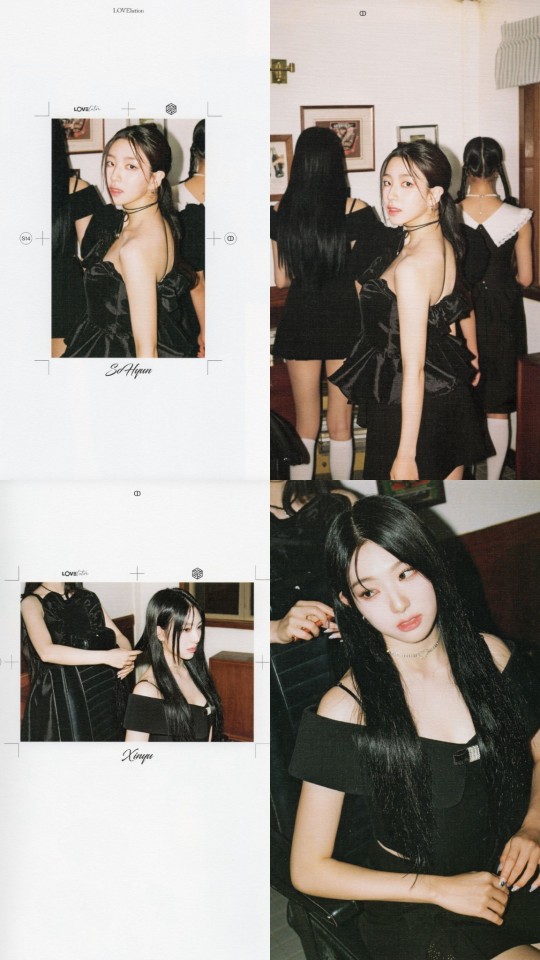
love love love this concept from tripleS' "ↀ" (muhan) photobook
cr. deadmanrunnins
#tripleS#seoyeon#hyerin#yubin#kaede#dahyun#nien#sohyun#xinyu#only the inconsistencies bother me#lovelution#tripleS lovelution
3 notes
·
View notes
Text
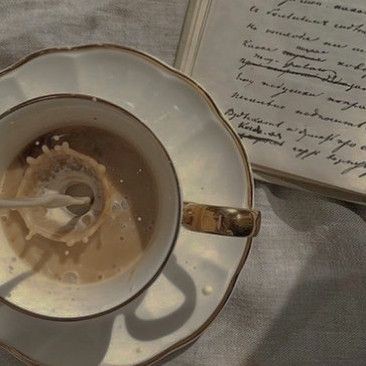
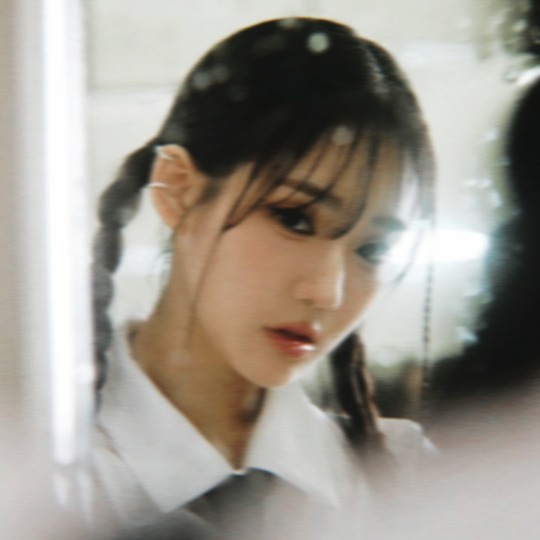




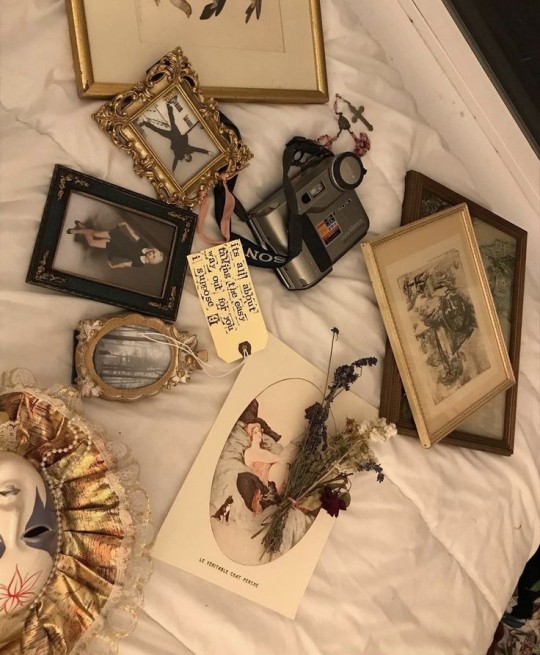
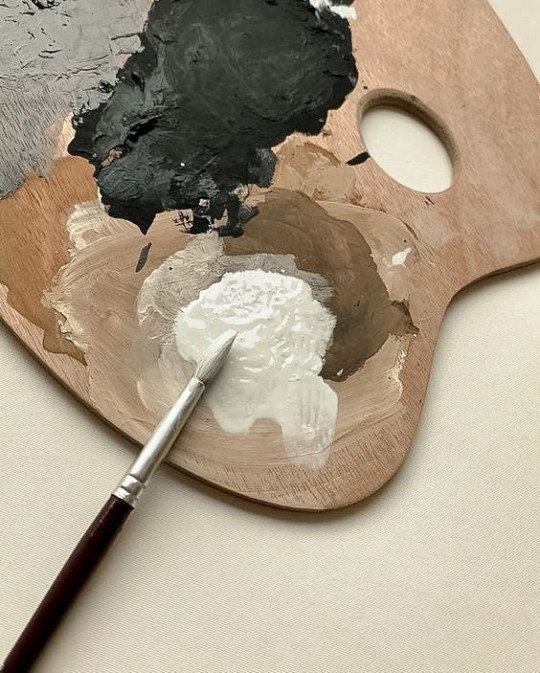
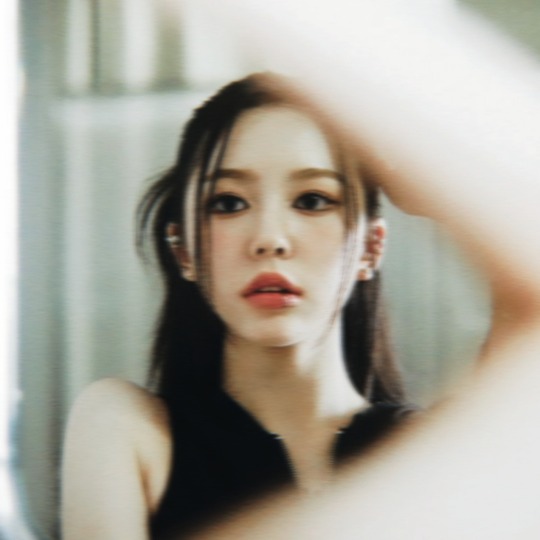
triple S icons
girl's capitalism icons: yubin, seoyeon and hyerin
like and reblog if you save it
#triple s icons#triple s#triple s kpop#kpop gg icons#kpop icons#kpop girl groups#seoyeon icons#yubin icons#hyerin icons#triple s yubin#triple s seoyeon#triple s hyerin#lovelution#LOVElution icons#girls capitalism#muhan#triples LOVElution
22 notes
·
View notes
Photo
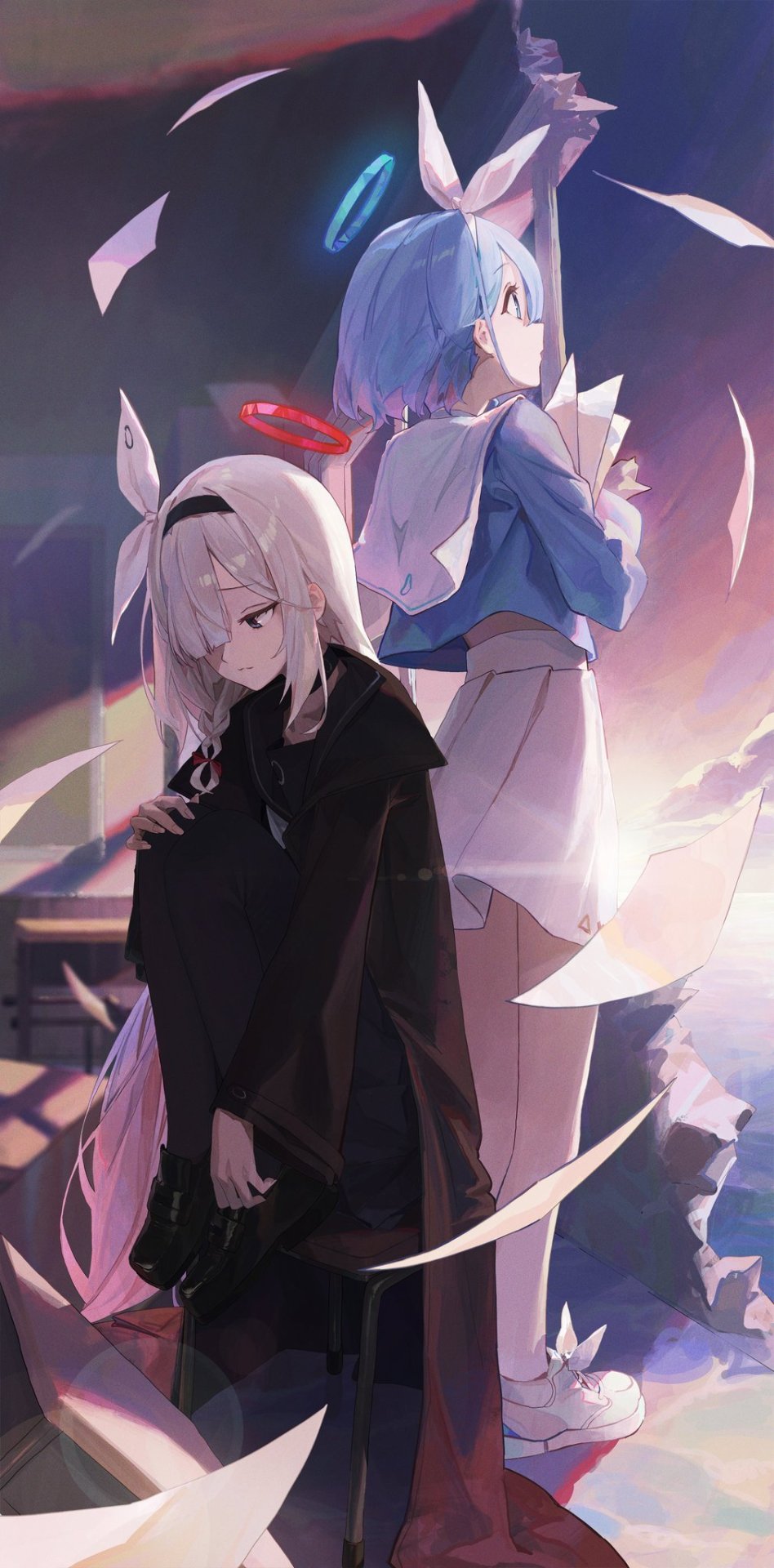
MuHanさんはTwitterを使っています: 「プラナとアロナ。 #ブルアカ #BlueArchive #블루아카 https://t.co/crVjybqIBI」 / Twitter
6 notes
·
View notes
Photo
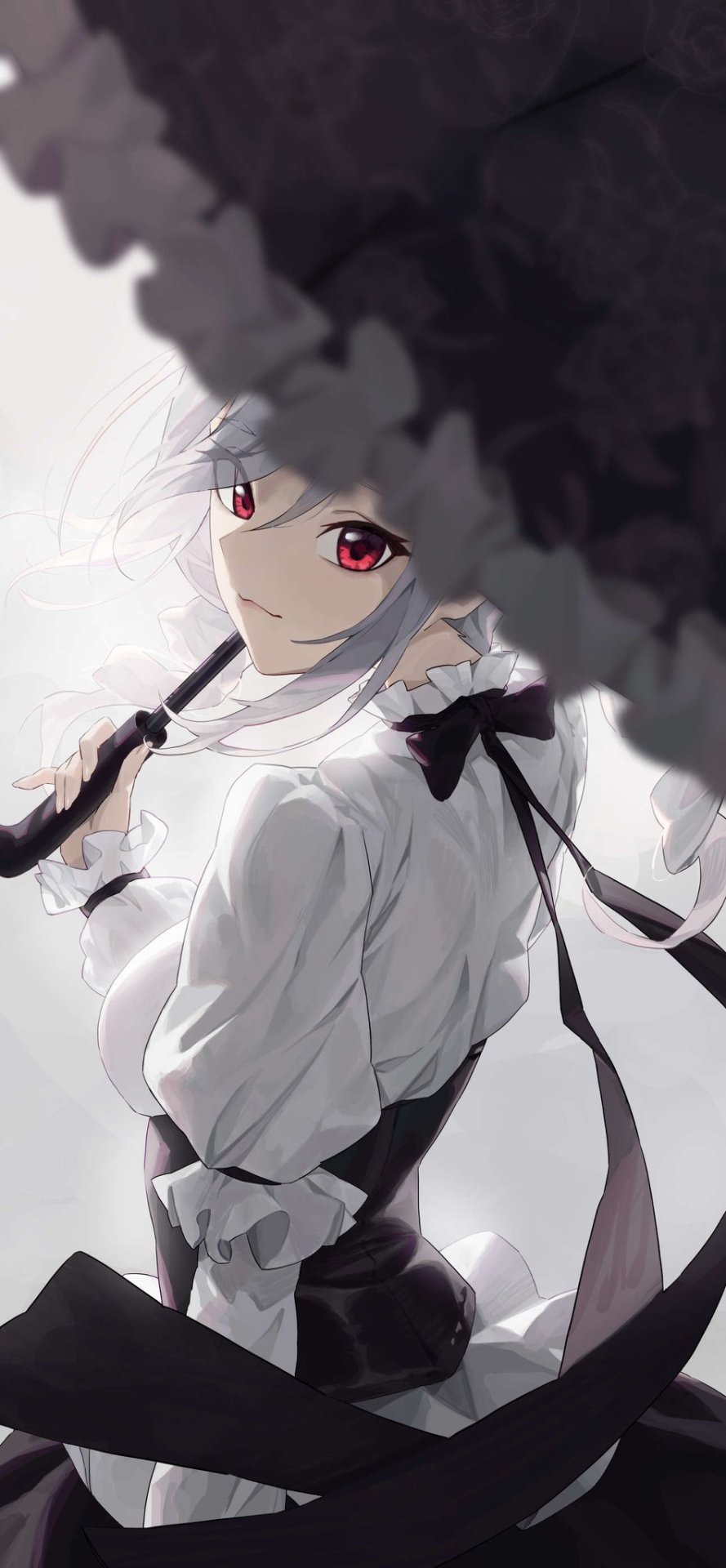
MuHanさんはTwitterを使っています: 「神崎蘭子描いてみました。 https://t.co/9D0kOXTI2U」 / Twitter
20 notes
·
View notes
Text
Helluva Boss-dom of an in-world 16^12 AU...
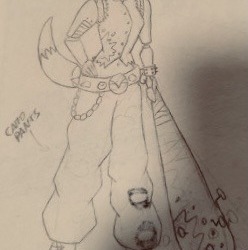

Some years back, I commissioned @lagt-duck ? for a "Vivenne Medrano"-verse OC. I was not disappointed with this automata I shall now name "Itzel".

And now that a bigger chunk of both shows are up and that I have a stronger grasp on matters both within and outside as far as my constructed world cultures & overall metapattern-matching is concerned, let me present you my very own half-a-toon cast:
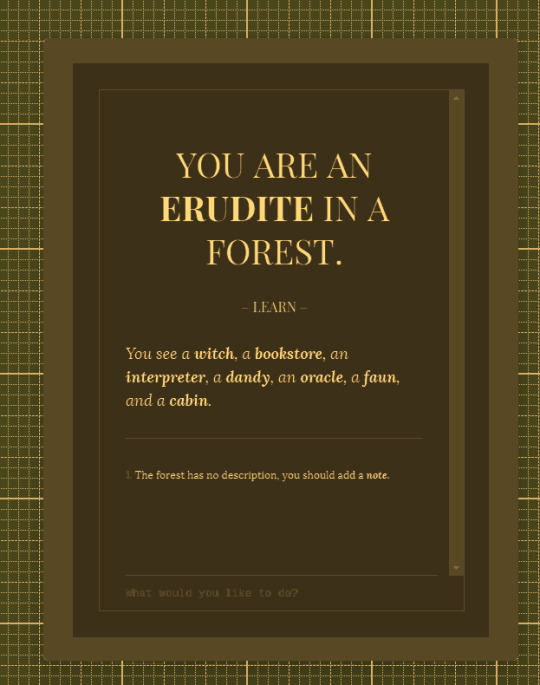
Nucleus household
Nil (second person perspective agent, ~0)
Kate (author self-insertee, autistic INTJ-T)
Iwa (third-person camera agent & android companion, ENFP)
Sina (mysterious black Angora housecat)
Extended Nucleus household Tier 1
Deno Hayden (younger brother)
Wyatt Hayden (youngest brother)
Falah Becker (mother, linguist)
Gustav Hayden (father, media figure)
Extended Nucleus household Tier 2
Vector Hayden (toymaker)
Nancy Payett (civil architect)
Sequoia Becker (carpenter / furniture woodworker)
Vina Cardinal (technical writer, female engineer / programmer)
"Mothfolk" household
Tano Neuer ()
Neis Numic ()
Valenz Booksword ()
Constans Blackhand ()
(unsorted)
Valence Webb
Ulli Elke
Harvae
Tekla Karol
May
Vera Hervaga
Lea
Agatha
Mathild
Rebeka
Fynn
Saller
Vratislav
Anatol
Petra
Ursae
Sascha
Magali
Micha
Mathyas
Milan
Aurel
Hypathia
Petrik
Ferko
[...]
Shoshoni dynasty
Nova
Quanah
Hachi
Pauwau
Pana
Mato
Viho
Peta
Annawan
Assyrii dynasty
Pana
Ishtar
Marbita
Aulada
Iptar-Sin
Persian dynasty
Sima
Parvin
Ziba
Pardis
Aram
Roya
Aram
Saman
Reza
Parviz
Aziz
Arzhang
Hittite dynasty
Usapa
Ayale
Zuppa
Zipani
Zuzzu
Inar
Kura
Muksu
Tamur
Hungarian dynasty
Halasz
Jakab
Bakos
Gal
Nemeth
Vincze
Dudas
Barna
Soos
Kiraly
Balla
Toth
Pal Veres
Akkadian dynasty
Nur-Ayya
Balathu
Utuaa
Rihat
Ku-Aya
Ettu
Banunu
Gemekaa
Babylonian dynasty
Ardi-ea
Laliya
Dibbarra
Rimush
Gula
Ri
Davke
Zakiti
Egyptian dynasty
Pet-Amen
Tikar
Mes-Sit
Rehema
Atef
Edjo
Usirtasen
Madu
Nu-Antef
Hurbasa
Gaulish dynasty
Ceno
Veugnus
Veruico
Sammus
Lituccia
Sama
Cattulla
Veca
Namiola
Vellibia
Taurina
Verucia
Ottoman / Turkic dynasty
Idris
Muhan
Taner
Evrim
Taylan
Sena
Hazan
Pervin
Fidan
Seren
Jale
Pelin
Phonecian dynasty
Eshmun
Donis
Milkpilles
Ugarit
Hamilcar
Byblos
Addonia
Zephon
Tanis
Jezibel
Tenithe
Yasha
Azibal
Tanni
Tanythe
Arisha
Dido
Elissa
Anath
Amma
Samoan dynasty
Apelu Tui
Falaniko Anae
Siaosi Faamoana
Lulu Latu
Lua Asoau
Tava'esina Taalitua
Inuit dynasty
Ataneq Annakpok
Unnuk Annakpok
Irniq Annakpok
Nuniq Annakpok
[...]
Will iterate, derive, develop and show more soon...
#maskoch#16^12#helluva boss fanart#hazbin hotel fanart#improving upon the Vivienne Medrano indie recipe
1 note
·
View note
Text
under the cut all the albums i listened to in 2023 (the list is in italian but i think it's still understandable)
GENNAIO (21 album ascoltati su 31gg, -10)
• Ritorno al Futuro/Back To The Future - Elisa (2022)
• Querencia - Chung Ha (2021)
• Stamp On It - GOT The Beat (2023)
• Doublast - Kep1er (2022)
• Rush - Måneskin (2023)
• Moss - Maya Hawke (2022)
• I Am Me. - Weki Meki (2021)
• Hold The Girl - Rina Sawayama (2022)
• Confetti - Little Mix (2020)
• Plastic Hearts - Miley Cyrus (2020)
• Am I A Girl? - Poppy (2018)
• Currents - Time Impala (2015)
• Crash - Charli XCX (2022)
• Diamond & Dancefloors - Ava Max (2023)
• Loose - Nelly Furtado (2006)
• Hounds Of Love - Kate Bush (1985)
• Panorama - Hayley Kiyoko (2022)
• The Gods We Can Touch - Aurora (2022)
• The Loneliest Time - Carly Rae Jepsen (2022)
• Campi Elasi - Elasi (2020)
• Oasi Elasi - Elasi (2022)
FEBBRAIO (36 ascoltati su 28gg, +8)
• Happier Than Ever - Billie Eilish (2021)
• Taste Of Love - Twice (2021)
• Traumazine - Megan Thee Stallion (2022)
• Numeri Primi - Hu (2022)
• Only Love, L - Lena (2019)
• Disco - Kylie Minogue (2020)
• Impera - Ghost (2022)
• Fanmail - TLC (1999)
• If I Can't Have Love, I Want Power - Halsey (2022)
• Between 1&2 - Twice (2022)
• Youngblood - 5 Seconds Of Summer (2018)
• Fetch The Bolt Cutters - Fiona Apple (2020)
• Gaslighter - The Chicks (2020)
• Ok. Respira - Elodie (2023)
• Spice - Spice Girls (1996)
• Confessions on a Dance Floor - Madonna (2005)
• Dreamland - Glass Animals (2020)
• Arrival - ABBA (1976)
• Cause Perse - Sethu & Jiz (2023)
• The Electric Lady - Janelle Monáe (2013)
• Cabin Fever - Purple Kiss (2023)
• Nel Caos Di Stanze Stupefacenti - Levante (2017)
• Planet Her (piratato) - Doja Cat (2022)
• Blu¹ - Giorgia (2023)
• This Is... Icona Pop - Icona Pop (2013)
• True Romance - Charli XCX (2013)
• Gloria - Sam Smith (2023)
• Diamond Life - Sade (1984)
• She Wolf - Shakira (2009)
• Blu Celeste - Blanco (2021)
• Opera Futura - Levante (2023)
• Assemble - tripleS (2023)
• Cani Sciolti - Francesca Michielin (2023)
• My 21st Century Blues - Raye (2023)
• Pipes and Flowers - Elisa (1997)
• Sheer Heart Attack - Queen (1974)
MARZO (16 ascoltati su 31gg, -15)
• seOul cOllectiOn - OnlyOneOf (2023)
• Magellano - Francesco Gabbani (2017)
• Motomami - Rosalía (2022)
• Heal - Loreen (2013)
• Amelia - Mimi Webb (2023)
• Un Meraviglioso Modo Di Salvarsi - Coma_Cose (2022)
• Solar Power - Lorde (2021)
• I'm Your Baby Tonight - Whitney Houston (1991)
• Club Topperia - MYSS KETA
• Laurel Hell - Mitski (2022)
• Ready To Be - Twice (2023)
• Lowlife Princess: Noir - BIBI (2022)
• the Billage of perception: chapter three - Billlie (2023)
• Rausch - Helene Fischer (2021)
• Whitney - Whitney Houston (1987)
• Desire, I Want To Turn Into You - Caroline Polachek (2023)
APRILE (0 ascoltati su 30gg, -30)
:(
MAGGIO (4 ascoltati su 31gg, -27)
• Unforgiven - Le Sserafim (2023)
• My World - aespa (2023)
• I Feel - (G)I-DLE (2023)
• The Fifty - Fifty Fifty (2022)
GIUGNO (0 ascoltati su 30gg, -30)
:(
LUGLIO (19 ascoltati su 31gg, -12)
• Magic Still Exists - Agnes (2021)
• Spiceworld - Spice Girls (1997)
• La Tigre Assenza - Maria Antonietta (2023)
• Bu Bu Sad - La rappresentante di lista (2018)
• Reboot - Wonder Girls (2015)
• The Age Of Pleasure - Janelle Monáe (2023)
• Voglia di vivere - Angelina Mango (2023)
• Rockabilly Carter - Colla Zio (2023)
• I've IVE - IVE (2023)
• Daydream - Mariah Carey (1995)
• In Pieces - Chlöe (2023)
• Impossible Princess - Kylie Minogue (1997)
• bellodrama - Ana Mena (2023)
• 777 - Latto (2022)
• Elephant - The White Stripes (2003)
• Fever - Kylie Minogue (2001)
• Endless Summer Vacation - Miley Cyrus (2023)
• Dietro le apparenze - Giorgia (2011)
• Version Up - Odd Eye Circle (2023)
AGOSTO (6 ascoltati su 31gg, -25)
• Game Plan - Jeon Somi (2023)
• Teenfresh - STAYC (2023)
• MUHAN - tripleS (2023)
• Barbie The Album - Artisti Vari (2023)
• AR - Addison Rae (2023)
• That! Feels Good! - Jessie Ware (2023)
SETTEMBRE (3 ascoltati su 30gg, -27)
• Loossemble - Loossemble (2023)
• Endless Fantasy - Anamanaguchi (2013)
• E poi siamo finiti nel vortice - Annalisa (2023)
OTTOBRE (16 ascoltati su 31gg, -15)
• Bewitched - Laufey (2023)
• Popstars - Lollipop (2001)
• Welcome To The Doll House - Danity Kane (2008)
• Poster Girl (Summer Edition) - Zara Larsson (2021)
• Tension - Kylie Minogue (2023)
• Sorry I'm Late - Mae Muller (2023)
• Heat - (G)I-DLE (2023)
• Silence Between Songs - Madison Beer (2023)
• Red Light - Elodie (2023)
• MUJUK - tripleS (2023)
• Howl - Chuu (2023)
• 1989 (Taylor's Version) - Taylor Swift (2023)
• Takin' It Back - Meghan Trainor (2023)
• Access - tripleS (2022)
• Aestetic - tripleS (2023)
• K - Heejin (2023)
NOVEMBRE (3 ascoltati su 30gg, -27)
• Drama - aespa (2023)
• Heaven knows - PinkPantheress (2023)
• The Loveliest Time - Carly Rae Jepsen (2023)
DICEMBRE (11 ascoltati su 31gg, -20)
• i may be an actress, but i cant fake how i feel - Laura Marano (2023)
• I've Mine - IVE (2023)
• Amici Come Prima - Colla Zio (2023)
• LoveSexDrugs - Michael Medrano (2023)
• Va' e Torna - Napoleone (2023)
• Kiss Of Life - Kiss Of Life (2023)
• Born to be XX - Kiss Of Life (2023)
• Unlock My World - fromis_9 (2023)
• i used to think i could fly - Tate McRae (2022)
• CLIQUE - Citizen Queen (2023)
• Così Speciale - Diodato (2023)
RIASCOLTATI: 4
• Sweetener - Ariana Grande (2018)
• Ok. Respira - Elodie (2023)
• Pink Tape - f(x) (2013)
• E poi siamo finiti nel vortice - Annalisa (2023) (in ordine diverso però)
0 notes